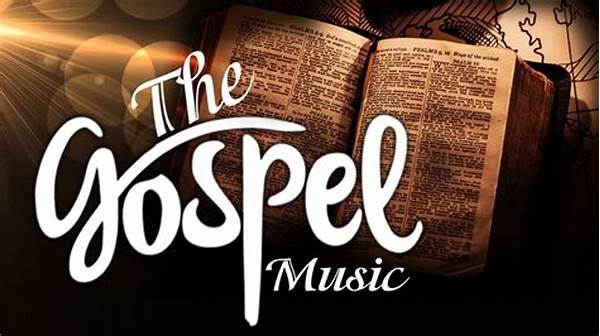Hey there! Have you ever caught yourself tapping your toes or humming along to a gospel song without realizing it? You’re definitely not alone. Gospel music has this magnetic charm that draws people in, regardless of their musical preferences. Over the years, gospel music has morphed and evolved, embracing new sounds and influences while still holding onto its spiritual roots. In today’s chat, we’re diving into the fascinating world of gospel evolutionary musical trends. Let’s explore how this genre has transformed and its impact on the music world.
Read More : Gospel Message Via Satellite Technology
The Roots of Gospel Evolution
Gospel music has a rich history, and its evolution is a journey worth exploring. Initially grounded in African-American spirituals, gospel music rose from the souls of those seeking solace and freedom during trying times. Over the decades, gospel music embraced different styles, from traditional hymns to contemporary mash-ups with hip-hop and R&B. These gospel evolutionary musical trends have paved the way for artists to experiment with new sounds while delivering powerful messages. By blending various musical elements, gospel music continues to reach new audiences across the globe. The impact of these trends is a testament to gospel music’s ability to adapt and resonate with diverse listeners.
Key Influences on Modern Gospel
Notable Artists in Gospel’s Evolution
It’s intriguing how gospel evolutionary musical trends have produced a plethora of talented artists who have shaped the genre. Legends like Mahalia Jackson and Aretha Franklin laid the groundwork for modern gospel music. Moving into the contemporary realm, artists like Kirk Franklin and Yolanda Adams have taken the gospel world by storm. Their music showcases a seamless blend of traditional gospel with modern styles like hip-hop, jazz, and R&B. These artists have not only redefined gospel music but have also inspired countless others to innovate and bring fresh sounds to the table. Their contributions to gospel evolutionary musical trends have ensured the genre’s enduring legacy and relevance.
Diversity in Gospel Sounds
The world of gospel is a melting pot of sounds. The gospel evolutionary musical trends have remarkably embraced different cultural influences, producing a rich tapestry of music that connects with listeners on multiple levels. Some gospel songs now feature reggae beats, while others pull inspiration from African rhythms. This evolution has made gospel music much more than just spiritual hymns; it’s a genre that’s adaptable and ever-changing. By incorporating diverse sounds, gospel artists can reach broader audiences and create music that transcends cultural boundaries. Hence, these evolving trends offer something for both the purists and the adventurous listeners.
Technology’s Impact on Gospel Music
In this digital age, gospel evolutionary musical trends have been significantly shaped by technology. Social media platforms and streaming services like Spotify and YouTube have made gospel music more accessible than ever. Artists can now reach global audiences without the need for a traditional record deal. Virtual collaborations have become commonplace, further enriching the genre with varying styles and voices. Recording and production have also evolved, allowing artists to blend electronic elements with classic gospel sounds, creating fresh compositions. Thus, technology has given gospel music a fresh lease of life, significantly broadening its reach and influence.
Read More : Spiritual Enlightenment Through Ancient Hymns
Cultural and Social Impact
Gospel music isn’t just about melodies and rhythms; it carries profound cultural and social significance. As gospel evolutionary musical trends progress, this genre continues to reflect social issues and promote messages of hope and unity. Gospel music has been a powerful medium in the fight for civil rights, and it remains a voice for change today. Its messages of faith, love, and perseverance resonate with people facing modern-day challenges. The ability of gospel music to adapt and stay relevant ensures its place as a vital cultural touchstone. Its evolution is not just a musical journey but a societal one as well.
Future Prospects of Gospel Music
So, what’s next on the horizon for gospel evolutionary musical trends? With the genre constantly evolving, the future looks promising. We can expect even more cross-genre collaborations and innovative sounds that will continue to push the boundaries of what gospel music is. Emerging technology like virtual reality concerts may soon revolutionize how gospel is experienced. Moreover, as more artists from diverse backgrounds contribute their unique sounds, gospel music will keep growing richer. These trends will likely continue to engage and inspire audiences, fostering a deeper connection while spreading its timeless messages of hope and love.
